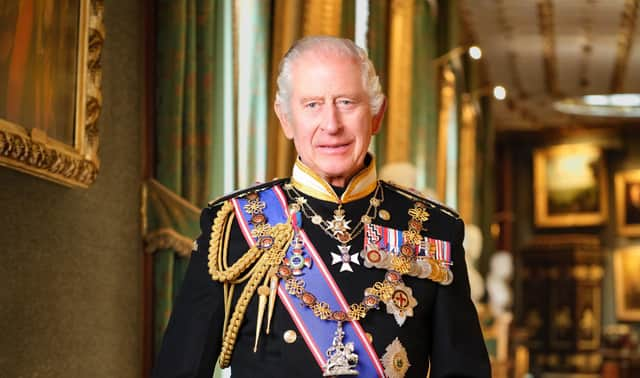Why is an enlarged prostate dangerous? King Charles III to go for 'corrective procedure'


Buckingham Palace has announced King Charles III will attend the hospital next week for treatment of an enlarged prostate – a small gland, located in the pelvis, between the penis and bladder.
In a statement, Buckingham Palace said: "In common with thousands of men each year, The King has sought treatment for an enlarged prostate.
Advertisement
Hide AdAdvertisement
Hide Ad"His Majesty's condition is benign and he will attend hospital next week for a corrective procedure. The King's public engagements will be postponed for a short period of recuperation.”
Benign prostate enlargement is common in men over 50 and is not usually a serious condition, according to the NHS website and the condition does not mean the patient has an increased risk of developing prostate cancer.
However, if the prostate becomes enlarged, it can place pressure on the bladder and the urethra, which is the tube that urine passes through. Symptoms of an enlarged prostate include:
- finding it difficult to start peeing
- straining to pee
- having a weak flow of urine
- "stop-start" peeing
- needing to pee urgently and/or frequently
- needing to get up frequently in the night to pee
- accidentally leaking urine (urinary incontinence)
In certain individuals, the symptoms may be mild and not require intervention, while in others they can be significantly bothersome.
Advertisement
Hide AdAdvertisement
Hide AdAccording to the NHS, the cause of prostate enlargement is unknown, but it's believed to be linked to hormonal changes as a person gets older.
People with mild symptoms do not usually need immediate treatment – instead, a person may be advised to make some lifestyle changes such as:
- drinking less alcohol, caffeine and fizzy drinks
- limiting your intake of artificial sweeteners
- exercising regularly
- drinking less in the evening
However, benign prostate enlargement can sometimes lead to complications and other conditions, such as:
- a urinary tract infection (UTI)
- chronic urinary retention
- acute urinary retention
Over 25,000 people have an operation to reduce the size of their prostate every year, making it one of the most common procedures performed on the NHS.
Advertisement
Hide AdAdvertisement
Hide AdThere are many options on the NHS that doctors may advise for surgically treating an enlarged prostate including Holmium laser (HoLEP), Transurethral resection of the prostate (TURP), Open prostatectomy, and Water ablation, among others.
Comment Guidelines
National World encourages reader discussion on our stories. User feedback, insights and back-and-forth exchanges add a rich layer of context to reporting. Please review our Community Guidelines before commenting.
